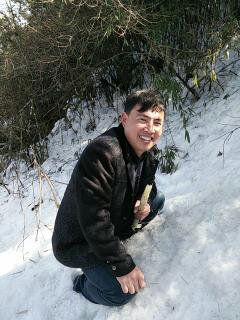
2016-05-06
列表
Hello,亲爱的同学们!欢迎来到句法找茬,每天下午14:00我们会推出一篇小文章,其中会5处句法错误等你来找,开启的火眼金睛,看谁先找到吧。今天的句法找茬由听枣学生会石静云同学编辑。
1)On day a hare were telling the other animals how fast he could run.
2)"I can beat anyone!" cried he.
3.)"Will one of you try a race with me?"
4)"I will", said the tortoise.
5)"You!?" laugh the hare."Oh, oh, how funny !"
6)"Save your laugh for the end of the race." said the tortoise.
7)So a start line was made, and away they went.
8)The hare ran fast and was soon far ahead, so he sat down to rest.
9)By the time the tortoise come up, the hare was sleeping.
10)There sat the tortoise by the sign that said: The End.
我的选择:
找茬答案: 1 , 5 , 6 , 7 , 9 ,
大家的选择结果!其中(√)为正确句子,(×)为错误句子。
1
18.1%
2
4.2%
3
3.8%
4
1.7%
5
15.7%
6
14.3%
7
13.6%
8
4.2%
9
16.7%
10
7.7%
学习者求助
求助一. were和was的共同点与区别是什么?求助二:过去进行时与一般过去时的区别是什么?

精选解答

王亚茹
2016-05-06 14:23:19
1)On day a hare were telling the other animals how fast he could run.(×)
On→One
were→was,主语是三单a hare,且为过去时态。
5)"You!?" laugh the hare."Oh, oh, how funny !" (×)
Laugh→laughed。过去时态
6)"Save your laugh for the end of the race." said the tortoise. (×)
laugh→laughing,感觉用laughing更好,强调的是笑的动作,laugh侧重笑声。
7)So a start line was made, and away they went. (×)
start→starting, 动名词形式作定语修饰line。
9)By the time the tortoise come up, the hare was sleeping. (×)
come→came,过去时态
1. 都是be的过去时态。were用于第一,二人称主语及复数。was用于三单。
2. 顾名思义,过去进行时就是过去某段时间里正在进行的动作。一般过去时是描述过去发生的事情,不强调正在进行的动作。
On→One
were→was,主语是三单a hare,且为过去时态。
5)"You!?" laugh the hare."Oh, oh, how funny !" (×)
Laugh→laughed。过去时态
6)"Save your laugh for the end of the race." said the tortoise. (×)
laugh→laughing,感觉用laughing更好,强调的是笑的动作,laugh侧重笑声。
7)So a start line was made, and away they went. (×)
start→starting, 动名词形式作定语修饰line。
9)By the time the tortoise come up, the hare was sleeping. (×)
come→came,过去时态
1. 都是be的过去时态。were用于第一,二人称主语及复数。was用于三单。
2. 顾名思义,过去进行时就是过去某段时间里正在进行的动作。一般过去时是描述过去发生的事情,不强调正在进行的动作。

刘章景
2016-05-06 22:19:58
1,a hare是三单,谓语用was.同时回答求助一,它们是be动词的过去时态。区别就是,它们所用的主语不一样,还有一点,在虚拟语气中只能用were,没有was. 5.laughded the hare.描述过去的事用过去时态。6.save your laughing不要笑得太早了,laughing强调笑的动作,laugh也有名词笑,但表示一种行为。7.a starting line起跑线。start是动词和名词,名词的形容词形式修饰物一般加ing.例,an interesting thing.9.错误与第5题一样,时态不一致。回答求助二:区别就是,过去进行时强调动作在过去某时刻正在进行或持续,,一般过去时表示动作已完成或一种状态。这就是英文与中文的区分点之一。

任娟Jinky
2016-05-06 20:54:39
1)On day a hare were telling the other animals how fast he could run.
on day -> one day (过去或将来某一天); were -> was (主语是 a hare, be 动词用单数, is 用在单数, are用在复数, 而 was是is的过去式, were是are的过去式)
5)"You!?" laugh the hare."Oh, oh, how funny !"
laugh->laughed (故事叙述的是过去发生的事情, 动词用过去式)
6)"Save your laugh for the end of the race." said the tortoise.
laugh -> laughing (laughing 侧重笑的动作, 是不可数名词; laugh可以用作动词和名词, 用作名词时,laugh是可数名词,可以用a修饰,也可以有复数形式. 侧重行为,是可数名词. 如嘲笑某人时表示的是一种行为用laugh, 这里强调笑的动作 )
7)So a start line was made, and away they went.
start -> starting (starting line: 起跑线, 合成名词. 动名词作定语用以表示被修饰名词的用途、目的和场合)
9)By the time the tortoise come up, the hare was sleeping.
come -> came ( (故事叙述的是过去发生的事情, 动词用过去式)
求助一. were和was的共同点与区别是什么?
共同点:两者都是be动词的过去式
区别:am, is - 过去式 was; are 过去式 were.
求助二:过去进行时与一般过去时的区别是什么?
区别 1 : 过去进行时强调动作在过去某时刻正在进行或持续,而一般过去时表示动作的完成.
如: He was doing his homework last night. 他昨晚在做作业. (不一定写完)
He did his homework last night. 他昨晚做了作业. (已经写完)
区别 2 : 表示过去的状态、感觉及心理活动的静态动词(如be, like, love, hate, fear, own, hear, see, know, want, notice)可用于一般过去时,但通常不用于进行时.
如: I hated it when a man spoke with his mouth full of food. 我讨厌人们说话时口里含着食物.
区别 3:一般过去时与 always, constantly, forever, continually 等连用, 表示“过去经常性、习惯性的动作" ; 而过去进行时与 always, constantly, forever, continually 等连用, 表示动作的重复, 常带有感情彩.如: He always got up at six. 他过去总是六点起床.
He was always thinking of his work. 他总是一心想到工作.
on day -> one day (过去或将来某一天); were -> was (主语是 a hare, be 动词用单数, is 用在单数, are用在复数, 而 was是is的过去式, were是are的过去式)
5)"You!?" laugh the hare."Oh, oh, how funny !"
laugh->laughed (故事叙述的是过去发生的事情, 动词用过去式)
6)"Save your laugh for the end of the race." said the tortoise.
laugh -> laughing (laughing 侧重笑的动作, 是不可数名词; laugh可以用作动词和名词, 用作名词时,laugh是可数名词,可以用a修饰,也可以有复数形式. 侧重行为,是可数名词. 如嘲笑某人时表示的是一种行为用laugh, 这里强调笑的动作 )
7)So a start line was made, and away they went.
start -> starting (starting line: 起跑线, 合成名词. 动名词作定语用以表示被修饰名词的用途、目的和场合)
9)By the time the tortoise come up, the hare was sleeping.
come -> came ( (故事叙述的是过去发生的事情, 动词用过去式)
求助一. were和was的共同点与区别是什么?
共同点:两者都是be动词的过去式
区别:am, is - 过去式 was; are 过去式 were.
求助二:过去进行时与一般过去时的区别是什么?
区别 1 : 过去进行时强调动作在过去某时刻正在进行或持续,而一般过去时表示动作的完成.
如: He was doing his homework last night. 他昨晚在做作业. (不一定写完)
He did his homework last night. 他昨晚做了作业. (已经写完)
区别 2 : 表示过去的状态、感觉及心理活动的静态动词(如be, like, love, hate, fear, own, hear, see, know, want, notice)可用于一般过去时,但通常不用于进行时.
如: I hated it when a man spoke with his mouth full of food. 我讨厌人们说话时口里含着食物.
区别 3:一般过去时与 always, constantly, forever, continually 等连用, 表示“过去经常性、习惯性的动作" ; 而过去进行时与 always, constantly, forever, continually 等连用, 表示动作的重复, 常带有感情彩.如: He always got up at six. 他过去总是六点起床.
He was always thinking of his work. 他总是一心想到工作.

张忠伟
2016-05-06 23:03:59
1.On day改成one day;were改成was;5. laugh the hare改成 laughed the hare;6.Save your laugh改成Save your laughing;7. a start line 改成 a starting line ;9.come up改成came up。求助一:were用在非三单形式的过去时态,或者用在主语是I的虚拟语气句子中,was用在三单形式的过去时态中,他们的共同点都是be的过去时态形式,用在过去时态中;求助二:过去进行时表示过去某一时间正在进行的动作,一般过去时表示截至到现在已经发生的动作,且对现在没有影响的。



